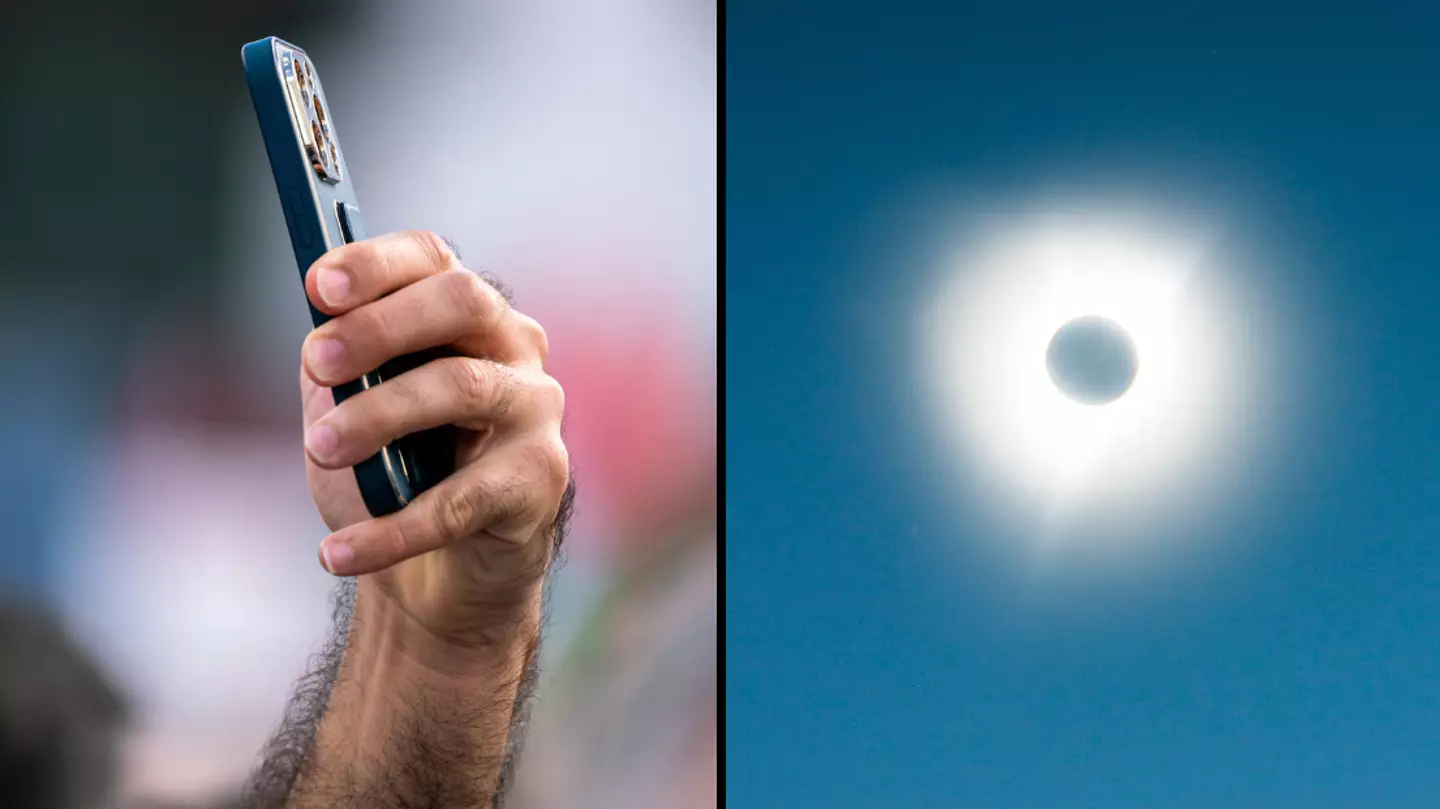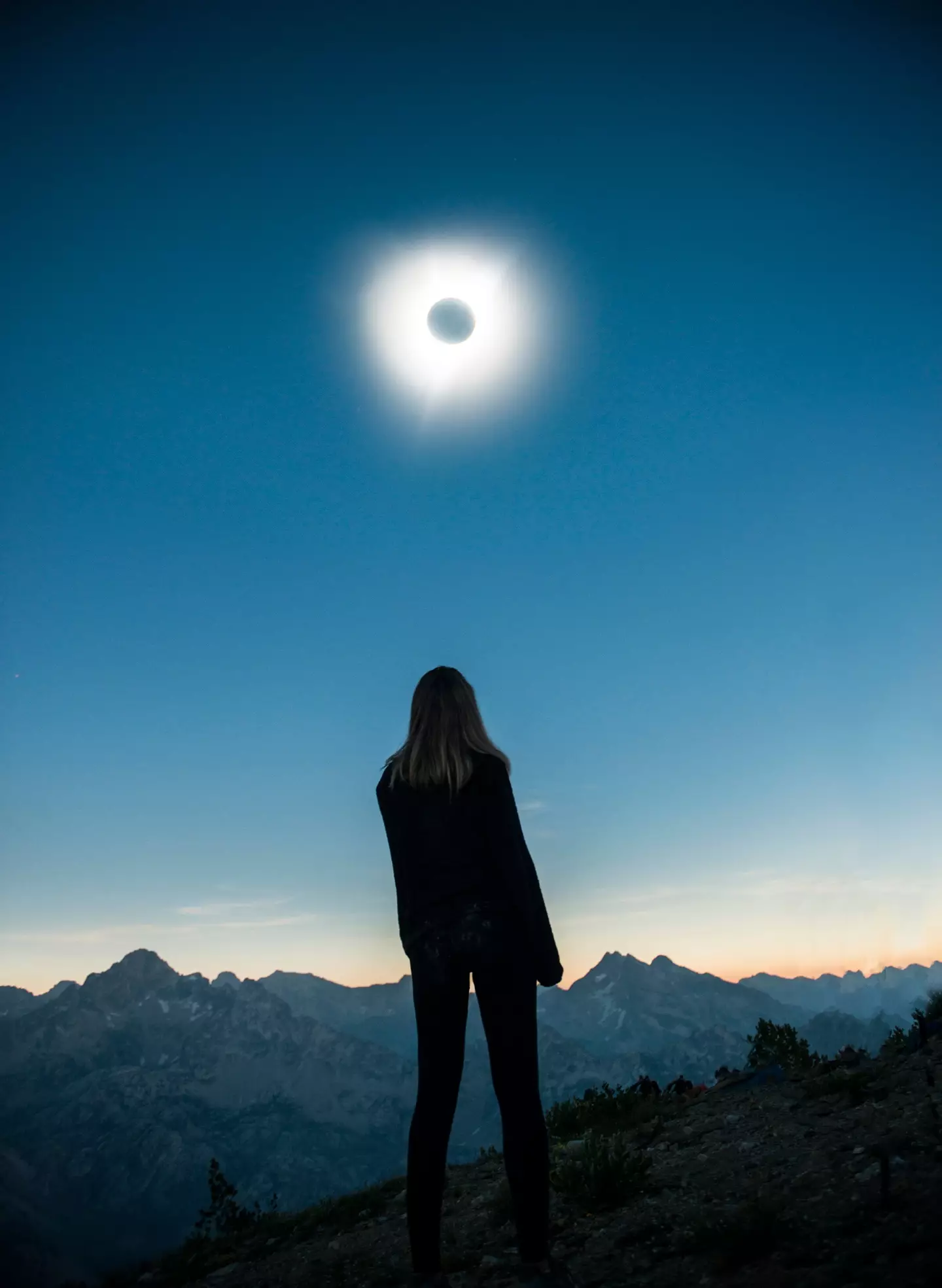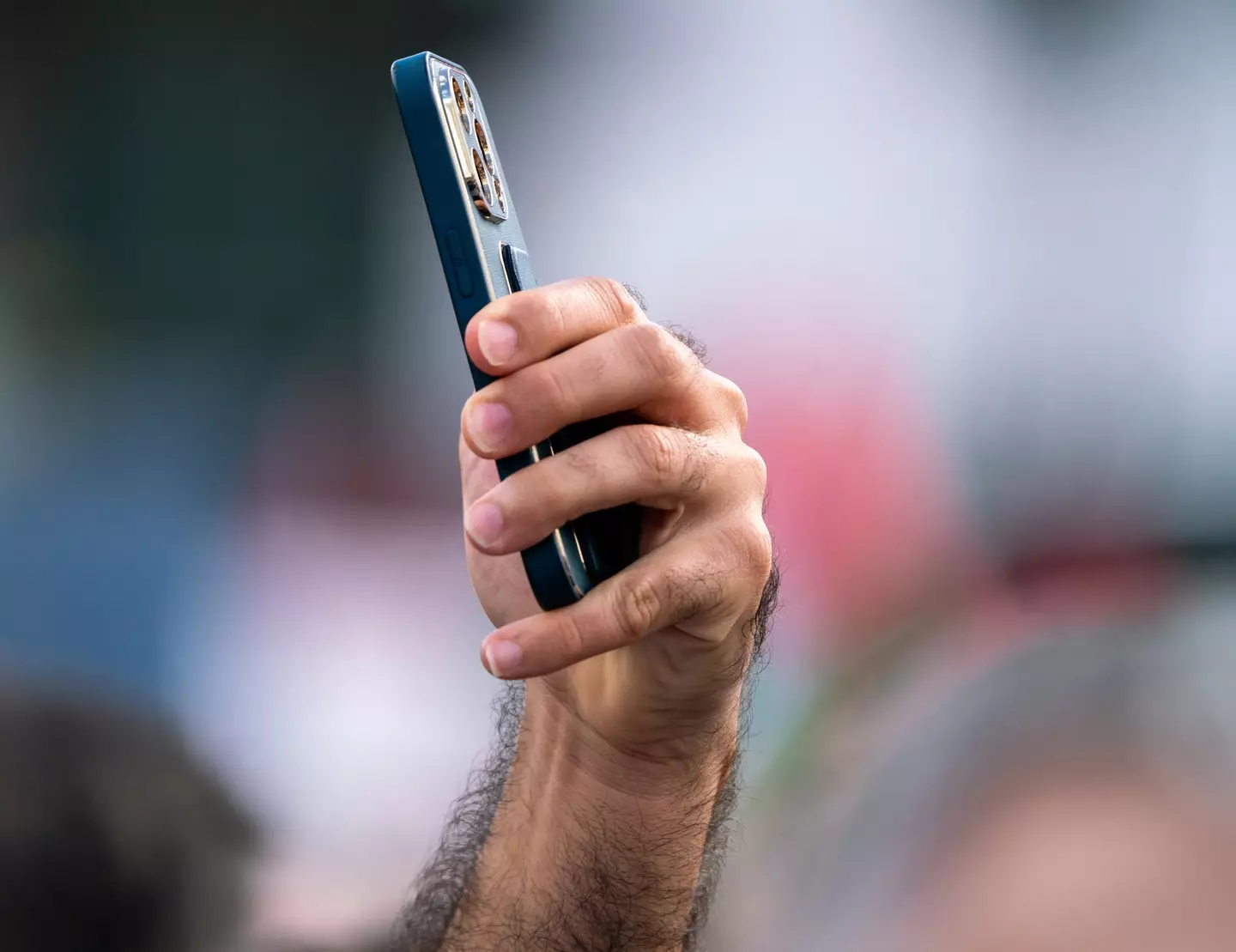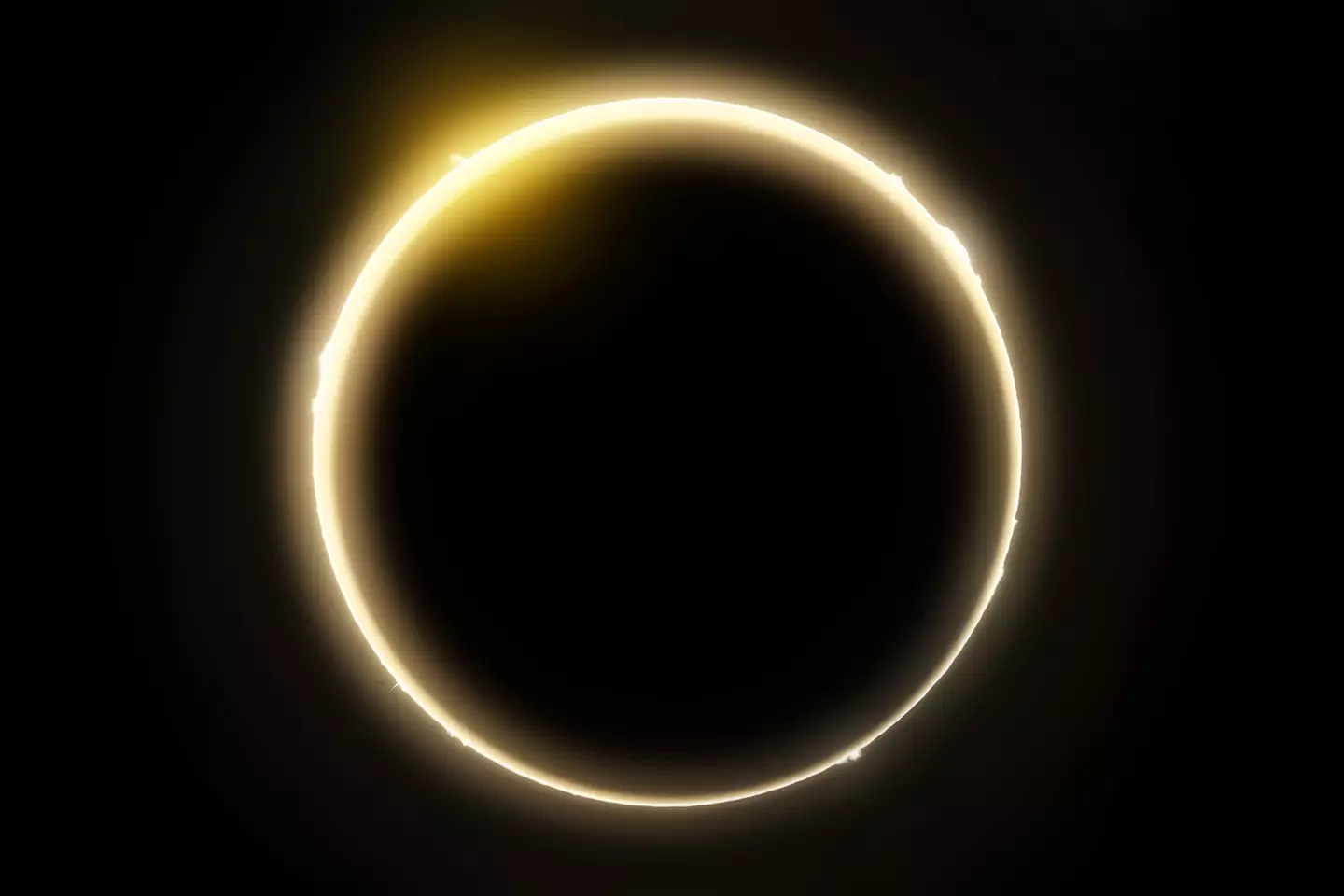
It'll be a case of all eyes up tonight as a total solar eclipse is about to hit Earth.
But a warning comes with viewing it - and we don't mean when it comes to watching it with your own eyes.
The rare natural phenomenon only happens in the same spot once every 375 years or so, with a path of totality some 122 miles wide set to plunge millions in to complete darkness during the middle of the day when the Moon and Sun line up in perfect symmetry.
Advert
Lasting a good few minutes, people across the USA, Mexico, and Canada will be able to experience the event as it happens later today (Monday, 8 April).
It'll hit Mexican shores at around 11.07am Pacific Time, which will be 8.07pm here in the United Kingdom, where some in the country as well as the Republic of Ireland could also get a glimpse of the eclipse.
A warning is in place when it comes to your eyes, with another also issued when it comes to your phone service before, during and after the event.
It's not the only problem you might encounter with your phone during the eclipse; especially if you decide to watch the event via your iPhone or Samsung Galaxy. The same can be said for those doing this with a camera.

It all comes down to pointing your phone camera (or any camera in general) at the Sun.
While it doesn't really do anything when we do it on a daily basis, apart from maybe ruining a photo you're trying to take, extended exposure to the camera lens could render your camera broken for good.
And if you're thinking about zooming in to get somewhat of a close up, expect damage to be more of a certainty.
That's according to NASA, which has issued some critical advice on recording the event safely not just for your eyes but your equipment.

In a statement, NASA said: 'We asked our NASA Headquarters Photo Department team, and the answer is yes, the phone sensor could be damaged just like any other image sensor if it’s pointed directly at the Sun.
"This is especially true if you’re using any sort of magnifying lens attachment on the phone.
"You would need to utilise the proper filters just like on any other camera.
"The best practice would be to hold a pair of eclipse glasses in front of your phone’s lenses when photographing the Sun at any point other than totality."

Google's Pixel camera team echoed NASA, saying: "We would not recommend pointing it directly at the Sun for extended periods of time with no filter.
"There’s not really a case of damage there, provided you don’t try to do anything funny like just leave it out there with the camera open for a long time."
When it came to zooming in, Aaron Zimmerman, clinical professor at the Ohio State University College of Optometry, said that such an act 'condenses light' and is 'very risky to use to view the eclipse'.
Just like with your eyes, you can get protective filters for your camera - whether a handheld one or just through your phone.
Topics: Space, Phones, iPhone, Technology, World News, UK News, US News, Science, Google, NASA, Samsung